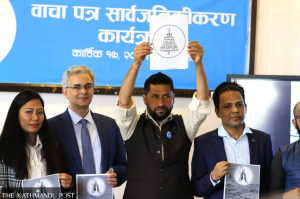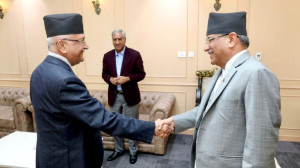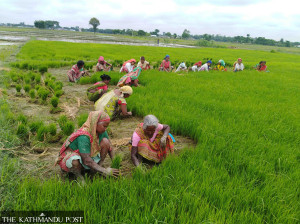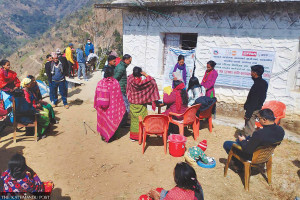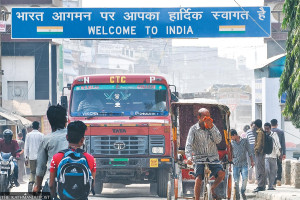 16.12°C Kathmandu
16.12°C KathmanduColumns
Year of the Wood Dragon
Hopefully, Singapore will regain the creativity, passion, courage and confidence it was once known for.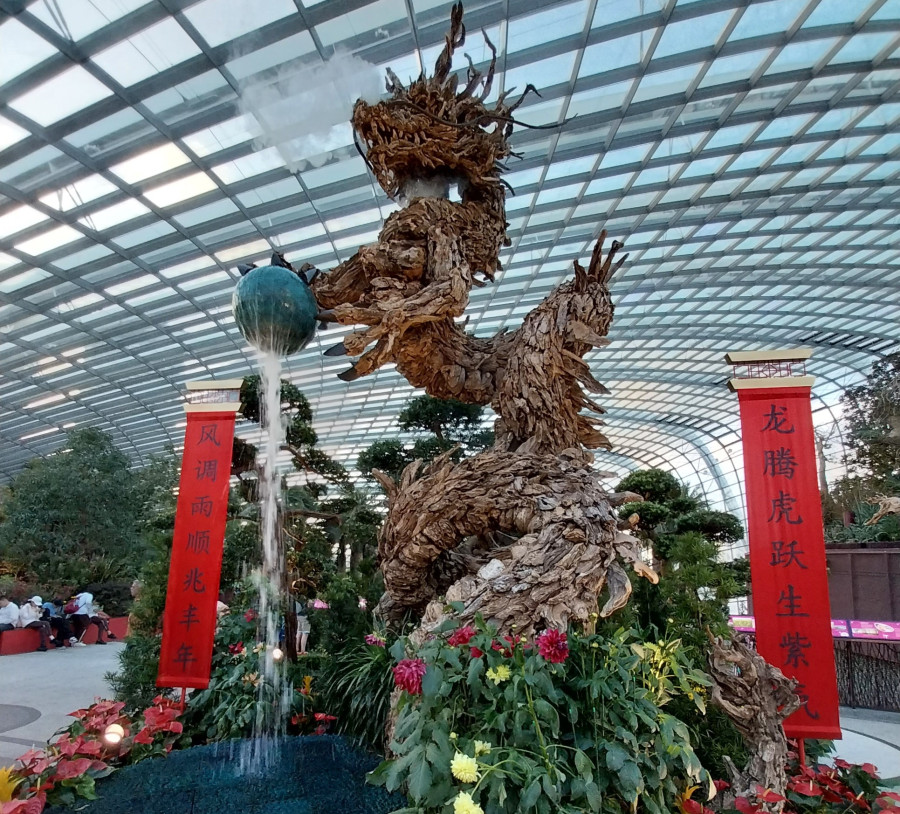
CK Lal
Singapore is all decked up for the Year of the Wood Dragon 2024, which begins on February 10. It was in the Year of the Dragon in 1964 when racial riots on the island forced Malaysian Prime Minister Tunku Abdul Rahman and Singaporean Prime Minister Lee Kuan Yew (LKY) to reconsider their union of a year earlier. After a tearful separation, Prime Minister Lee declared on August 9, 1965, that Singapore ceased to be a state of Malaysia and had become an independent nation.
A far-sighted leader, Prime Minister LKY departed from the received wisdom of the time that a country must forge cultural uniformity to ensure its political unity. Instead, he made multiculturalism and multiracialism the two foundational principles of his multinational city-state. In stark contrast to the Bumiputra/Pribumi and similar nativistic policies that swept through member countries of the Association of Southeast Asian Nations (ASEAN) in the 1960s and 1970s, Singapore remains committed to celebrating ethnic diversity as the basis of its national unity.
Despite the overwhelming dominance of the ethnic Chinese (75.9 percent) in the national population, indigenous Malays (15 percent) or Indians of different ethnicities (7.5 percent) don’t feel left out of the political economy. Singapore recognises Chinese, Malay and Tamil as its national languages, but English remains the primary language for all transactions. The fabulously rich city-state is not known for fighting over the foreignness of the Common Era calendar, the necessity of prioritising the language of the overwhelming majority, or delegitimising festivals of permanent minorities.
On the geopolitical front, LKY recognised the compulsions of the Cold War and aligned his country with the US block of Western powers. When the US was confronting the People’s Republic of China in the 1960s, he positioned his country as an anti-communist bastion in Southeast Asia and benefited immensely from being a logistical base of US operations in Indochina and the Indian Ocean region. Once President Richard Nixon and Chairman Mao Zedong shook hands in February 1972 and Saigon fell in 1975, Singapore lost no time reframing itself as a bridge between frenemies of the emerging global order.
After the political reemergence of Deng Xiaoping, a slightly repentant and defensive Washington found Beijing a lot calmer and less ill-disposed towards its main geopolitical goals in Asia—maintaining the status quo over energy resources in West Asia, keeping oceanic trade routes open and containing Soviet influence everywhere. In his determination to grow gloriously rich, Chairman Deng wanted to distance himself from the colour of the cat and concentrate on its ability to catch the mice.
Amoral pragmatism
The phenomenal transformation of Singapore from the backwaters of Malaysia to the power economy of Asia was a model the strategists of Beijing would scale up to create several Special Economic Zones in coastal areas as engines of economic growth. By the early 1990s, LKY had become a global statesman by contrasting attributes of “Asian Values” such as kinship, discipline, consensus and harmony over the individualism, democracy, competition and questioning ethos of the West.
Once described as a “Machiavellian in a Confucian mask”, LKY had realised the constraints of his island nation early on. It had limited agriculture, a bit of fishing and almost no natural resources—not even a sufficient supply of fresh water. Business had to be the business of Singapore if its economy were to survive and thrive. He also knew that businesses love regime stability, administrative predictability and well-oiled machinery to ensure the security of life and property. If the pursuit of prosperity required that liberty be curtailed in the national interest, then the contemporary ruler should show the determination to keep the masses mesmerised through populist policies.
Even as he renewed popular legitimacy through periodic polls, LKY made it clear that he was in total command of the country and brooked no dissent, let alone criticism, of his policies. He wanted Singaporeans to surrender their fundamental freedoms in lieu of generous public housing, world-class education and almost guaranteed employment. He promised businesses an open economy, ease of doing business, almost no petty corruption and city streets free of crime at all hours. He was able to deliver and survive due to various fortuitous circumstances.
Afraid of unexpected regime changes, top guns of the ruling junta in Burma found Singapore to be an ideal city to keep their family and fortunes in relative safety. The Thai elite considered it convenient to park or invest its unaccounted wealth in the city-state. Nativist policies of General Suharto’s discriminatory New Order in Indonesia had made Chinese-Indonesians fearful about their future, and those who could afford had begun to set up alternative bases to continue benefiting from trade and industry. Malaysian-Chinese found it safe to park the profits of crony capitalism from across the causeway to hide it from envious Bumiputras.
Indians traded with Pakistanis and the Chinese made deals with both, while multinational corporations of Western countries invested in relatively smaller markets or controlled economies of Asia through their shell companies in Singapore. Machiavellian LKY managed all such contradictions through a judicious mix of guided democracy—defined as “a formally democratic government that functions as a de facto autocracy”—and state-directed open economy that has allowed shipping, banking and finance, information technology and international trade to flourish with very little innovation and creativity.
Institutional complacency
By the time of his death, LKY had fine-tuned a governance model of autocracy that legitimised itself through periodic elections and delivered higher returns on investment through a committed technocracy under the command of an undisputed leader. It has worked extraordinarily well for almost six decades. Uncertainties of geoeconomics demand constant adaptation of even Machiavellian methods.
Unfortunately, LKY ended up establishing dynastic succession through democratic elections. Genius, however, is seldom fully transferred through family genes. The eldest son of LKY and current prime minister, Lee Hsien Loong, is enmeshed in prolonged sibling squabbles while geopolitical challenges mount upon the primacy of the island nation in high finance and international trade in Asia.
Under the “thought leader” Xi Jinping, China’s “One Country, Two Systems” is under extreme pressure due to Beijing's tightening grip over the governance of Hong Kong. However, international businesses and finance may find that the operational advantages of having a base closer to mainland China are no longer as risky as they had perceived while moving some of their capital to Singapore in the earlier decades.
Unlike Changi, the humongous malls of Dubai don’t enjoy the benefit of having an international airport attached to their premises, but the sheikdom of the United Arab Emirates (UAE) has begun to attract investment portfolios of Russian oligarchs, Chinese tycoons and crony capitalists from South Asia. The commercial impact of increasing Chinese inroads into the shipping lanes of the Arabian Sea and the Indian Ocean isn’t clear, but its geopolitical implications may put the previous alignment of Singapore under pressure.
Back in the late-1980s and early-1990s, the flow of energy in the streets of Singapore was unmistakable. Huge cranes still hammer away old structures to erect even higher buildings, but the city-state now looks like it has reached its zenith and just wants to remain there. Perhaps the dragon will bless the multinational state with the creativity, passion, courage and confidence it was once known for.











